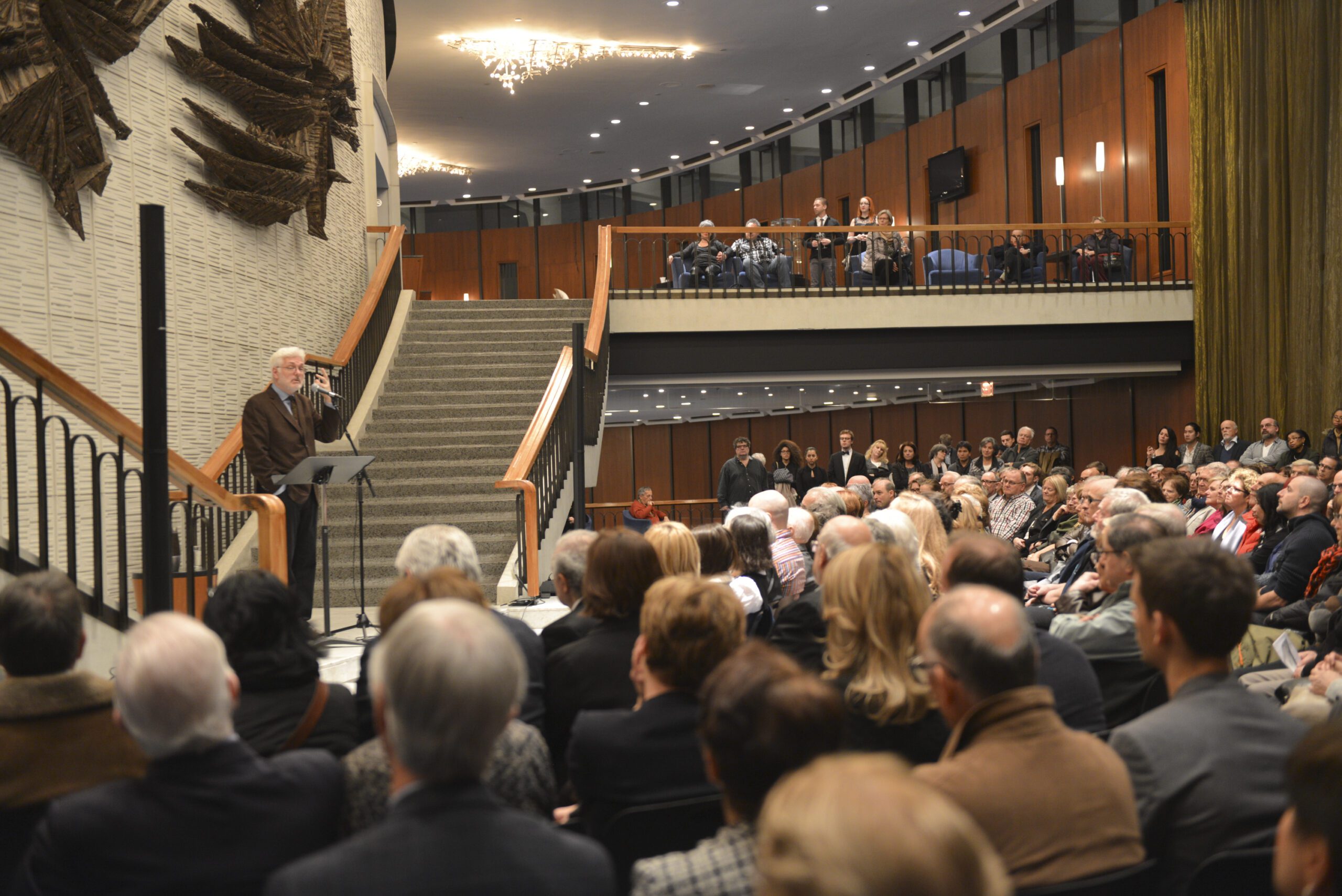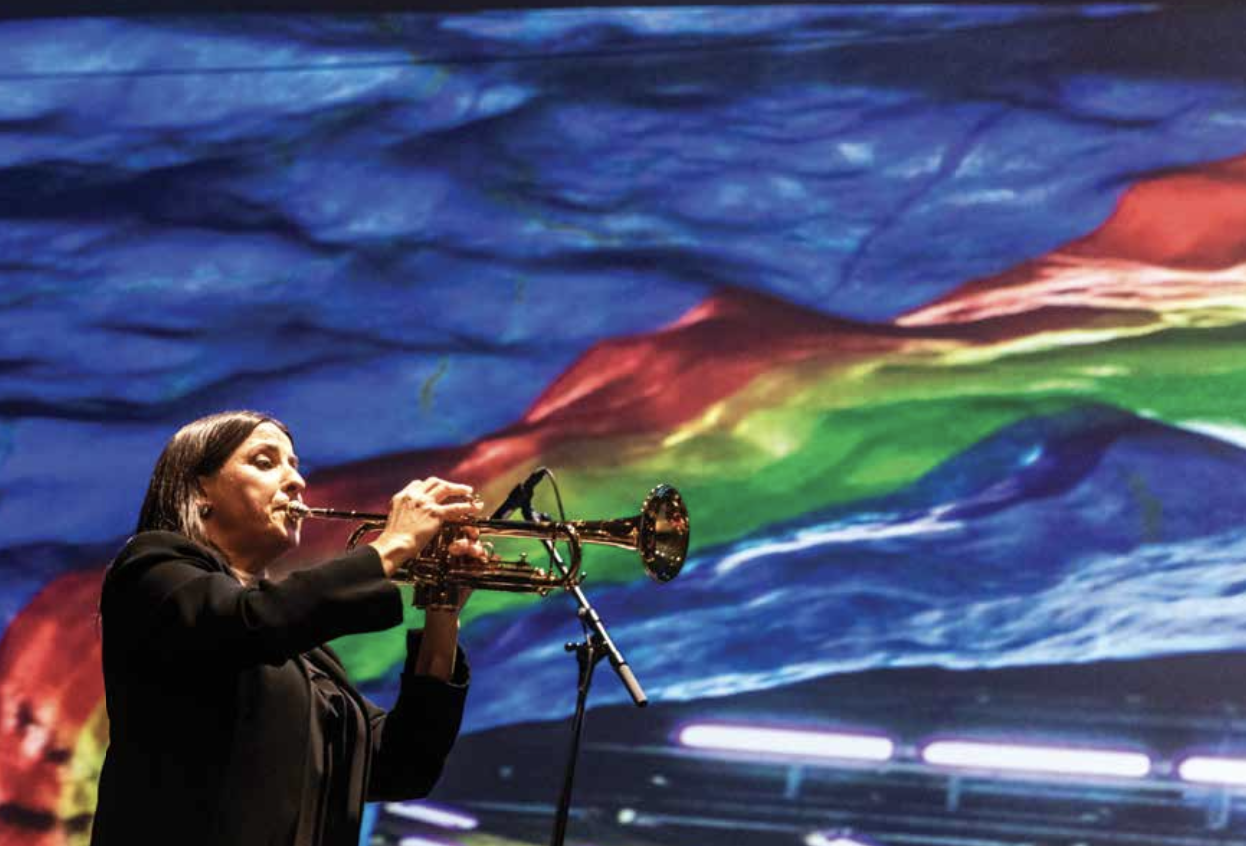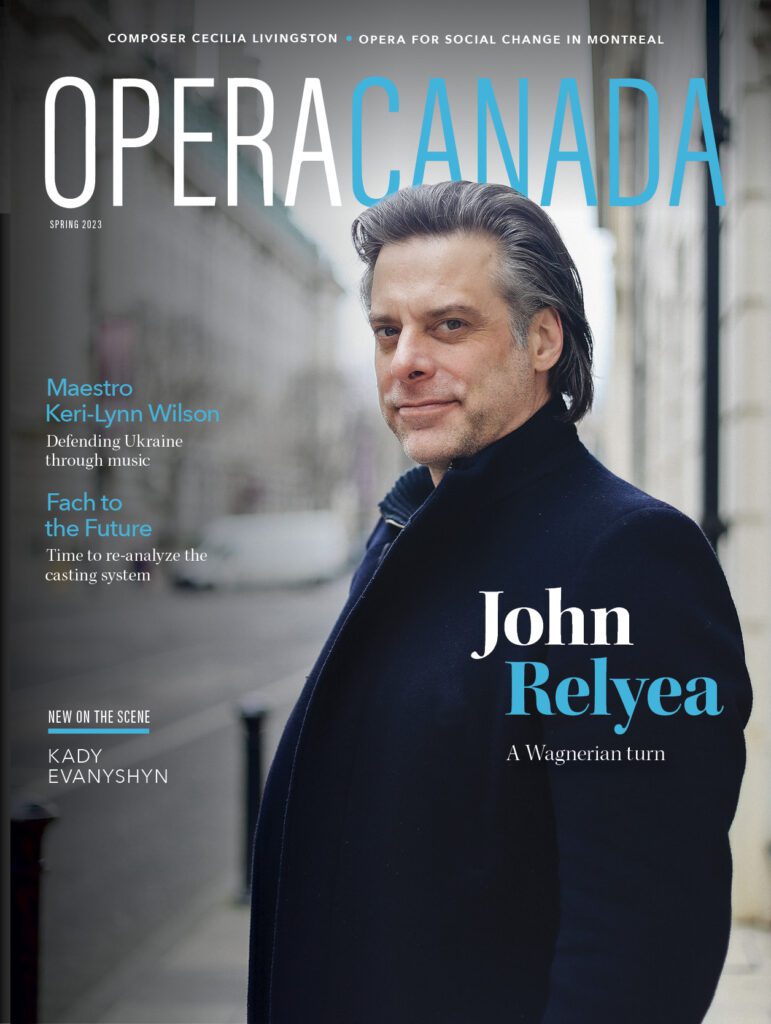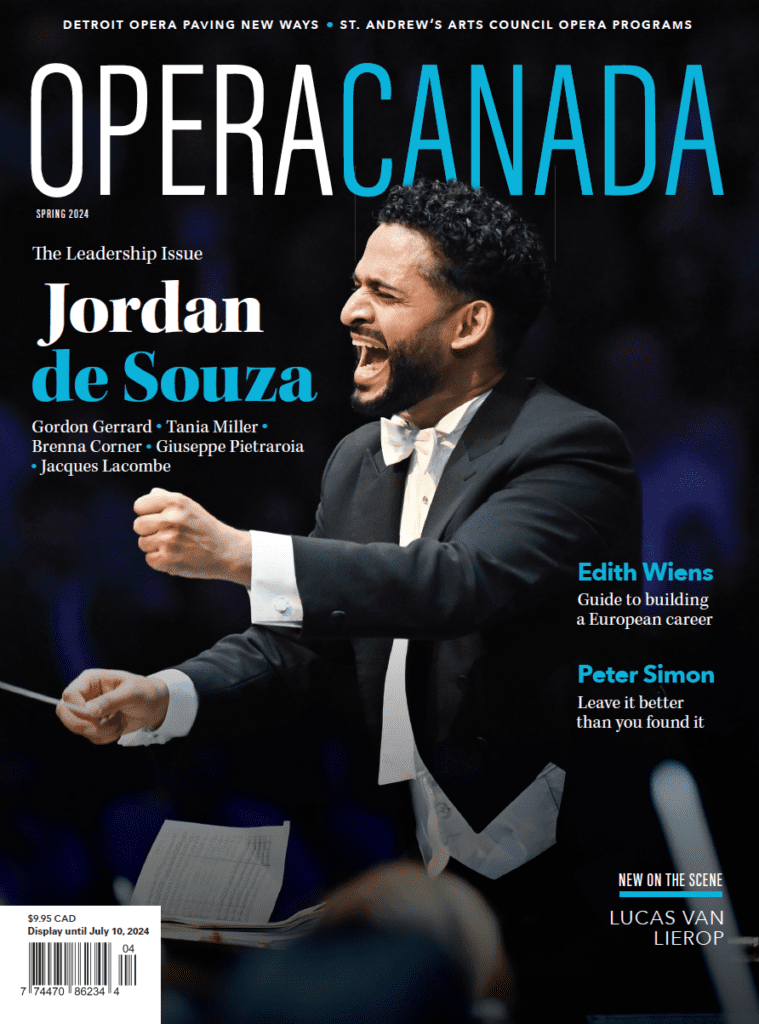SUBSCRIBE TO DIGITAL AND/OR PRINT MAGAZINE
*this text was originally published in the Spring 2023 print version of Opera Canada magazine
Sylvia L‘Écuyer reports on the success and importance of Opéra de Montréal’s community-minded programs.
A few months after moving from Victoria to assume the directorship of the Opéra de Montréal (OdeM), Patrick Corrigan was interviewed by Natasha Gauthier for Opera Canada. He spoke of his plans for raising the profile of the company, creating more operas, finding new funding and new audiences. Ten new operas have premiered since he took the helm in 2016, including five Canadian works with occupancy rates ranging between 80.3% and 92.9%.
New ambitious plans were drafted for the company at the end of 2018 when Corrigan, along with Pierre Vachon, then Director of Marketing and Education, participated in a panel discussion about ‘civic practice’ at the invitation of Opera America. The use of the term ‘civic practice’ by the organizers suggested “a shift away from strategies that build audiences, address barriers to participation and secure philanthropy.” Were these strategies not needed anymore? One would argue they still are but Opera America was boldly calling for “a systemic change in how a company operates and what opera leadership means in communities.”
L’Opéra de Montréal had already initiated such a change. In September 2016, a new work commissioned by Pacific Opera Victoria and OdeM premiered in Montreal. Les Feluettes, a tale of forbidden love between two men, by Australian composer Kevin March based on the 1985 play by celebrated Quebec writer Michel Marc Bouchard, received enthusiastic acclaim. Attending the opening in Montreal, Corrigan was very impressed by a ‘Pré-opéra’ event where Pierre Vachon introduced the work to a mixed audience of regular opera-goers and a public new to the art form but interested in the promotion of social justice.
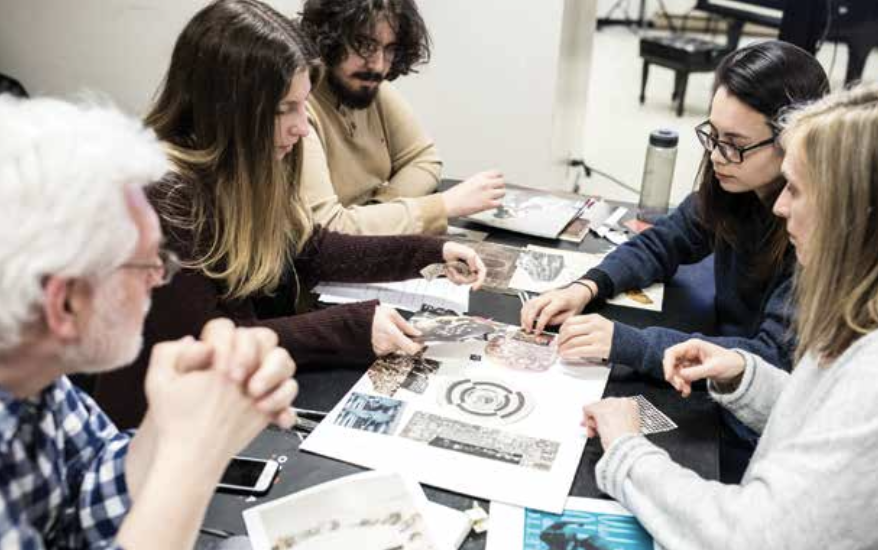
Pierre Vachon sitting in a workshop that aims to help young people dealing with mental health issues with opera Ⓒ Opéra de Montréal
“I saw Pierre had this magnificent talent! I asked him to commit himself to developing that whole side of our programming… Bringing the assets and capacities we have as an opera company, in collaboration with various partners, I saw we can create a new impact and further the fundamental belief of our organization which is that everyone deserves a life in art. [Opera] has incredible power, and we are in it for its development value.”
Pierre Vachon enthusiastically agreed to create a Department of Social Action and Education. In a well-crafted and illuminating essay published last fall in the literary magazine Les Écrits, Vachon, a translator, musicologist, lecturer and host, expressed his deep commitment to his mission. He started by quoting Venezuelan musician, economist and educator José Antonio Abreu, founder of El Sistema:
“Music should be recognized as an agent of social development, in the highest sense, as it transmits the highest values: solidarity, harmony, mutual compassion’. Abreu’s words have resonated strongly with me for years… These words have expressed a common conviction and traced a path, my path, made of wonder and beauty. These words speak of a personal quest; more than that, they inspire social responsibility… Music does good, transforms and forms… I am one of those who believe in it, to the point of having made it my personal, then professional mission, for a few years.”
In his essay, Vachon introduced the work of Dr. Patricia Garel, child psychiatrist at CHU Sainte-Justine. Convinced that art would help in the social rehabilitation and reintegration of her young patients, she launched Espace Transition (ET), an innovative initiative promoting rehabilitation through the performing arts. Dr. Garel believes that collective experience is central to ET programs, which are based on the idea that social integration is a crucial driver of well-being, adaptation and destigmatization. The creation of a collective work and the sharing of this achievement with outside individuals through shows, openings and other public events are central features of ET programs. The therapeutic added value of such components has been demonstrated.
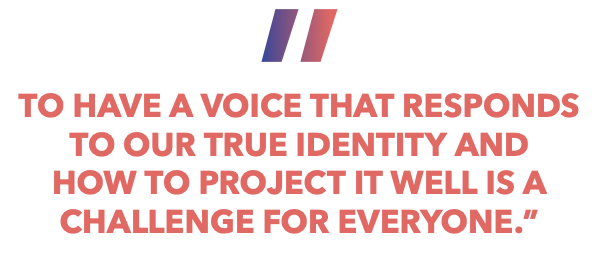
In 2018, Opéra de Montréal joined ET in an opera/mental health project. A dozen young people, two-thirds of whom were Ste-Justine patients whose condition was stabilized, were set the task of adapting an opera by rewriting the story to make it their own. They are the opera’s craftsmen, artists and performers, guided by a team of professional artists. The health status of each is kept unknown, a sine qua non condition throughout the duration of the project in order to promote an egalitarian relationship between participants and the artistic team. Each project is carried out for thirteen weeks.
Up to ten professionals are involved in each new opera production, including a composer, vocal coach, pianist, writer, stage director, and singers from the Atelier Lyrique young artists program. A health professional and/or social worker is also on site during the whole project. Composer Éric Champagne, whose opera Yourcenar premiered last year, has been involved in the last three projects. His task is challenging: once a work is chosen, he arranges a selection of arias for a five-piece orchestra and for singers who cannot read music and do not have trained voices. He also helps set the new texts created by the young participants, retelling the story informed by their own experience.
“It is beautiful to see their evolution,” says Champagne. “They are all coming on a voluntary basis. Some show up all excited and prepared to have fun, some are practically paralyzed and can hardly move, not to mention talk and sing. By the end, when they perform on stage in front of an enthusiastic audience, they are transformed.”
In 2019, Opéra de Montréal started collaborating with La Gang à Rambrou, an organization established in 1995, offering workshops in the performing and visual arts to adults living with an intellectual disability. The first project was an adaptation of the opera Carmen. The music was borrowed from Bizet, but the story was rewritten by the participants and based on a real-life situation that the intellectually disabled experience all too frequently: bullying. Vachon presents us with the case of Sacha:
“… born prematurely at 6 months. He is blind, autistic, intellectually disabled and suffers from severe behavioural problems. Since he was born, his mother has taken care of him full-time. He is now 42 and joins La Gang à Rambrou during the day to participate in the co-creation of musical performances that incorporate opera. Sacha loves music and opera, and singing makes him feel good, calms him and helps him to control his behaviour. The project gives him that opportunity every week, and breaks his isolation by inviting him to join a choral group.”
For the new Social Action Department, there is more than mental health to consider, and many other projects have been born: Opéra de rue (Street operas) for the homeless, opera projects for the deaf and the blind, Northern Connections for Indigenous and Inuit youth from the Canadian Far North, and co-Opera for young people in 5th and 6th grade, to keep them in school.
In 2022, the company launched RESPIRER, a new alternative program designed in collaboration with the Montreal Clinical Research Institute (IRCM). This program was inspired by BREATHE at the English National Opera, and offered free of charge to people who have been infected with COVID-19 and have developed sequelae associated with long COVID-19. The program came to support the IRCM Post-COVID-19 Research Clinic (IPCO) set up in 2021 under the direction of Dr. Emilia Liana Falcone, by offering a series of 12 virtual workshops lasting one hour each, based on the breathing technique used by opera singers. Created and designed by Ariane Girard, principal singing teacher at the Atelier Lyrique, the program was developed by mezzo soprano Charlotte Gagnon and supported by the medical advisor of the Opéra de Montréal, Dr. Françoise Chagnon.
The most recent project of the Department of Social Action and Education was launched in March 2023. The Harmonized Voice, is a workshop designed to help transgender women to find the voice of their new body. The project was incubated after Cédric Magian, a speech therapist who had developed a program called The Vocal Harmonization of Trans Women, contacted the Opera. The dynamic Charlotte Gagnon, who was hired in September to observe the initiatives in place and to review the organizational processes of the Department, will be in charge of the workshops.
“Cédric has a long waiting list,” explains Charlotte, “and the programs he offers are quite expensive. He saw our RESPIRER program, where we used the vocal technique and the respiratory practice of the opera singer to bring benefits to the body, physically, in a very targeted way… The objective is to know if singing opera together has an impact and if it can shorten the number of speech therapy sessions…”
Charlotte, who is not only an opera singer but also a yoga teacher, will propose breathing exercises, vocalizations, and encourage the participants to use their feelings to find the right connections. “To have a voice that responds to our true identity and how to project it well is a challenge for everyone,” says Charlotte. From my experience as a radio host, teacher and public speaker, I know she is right.
